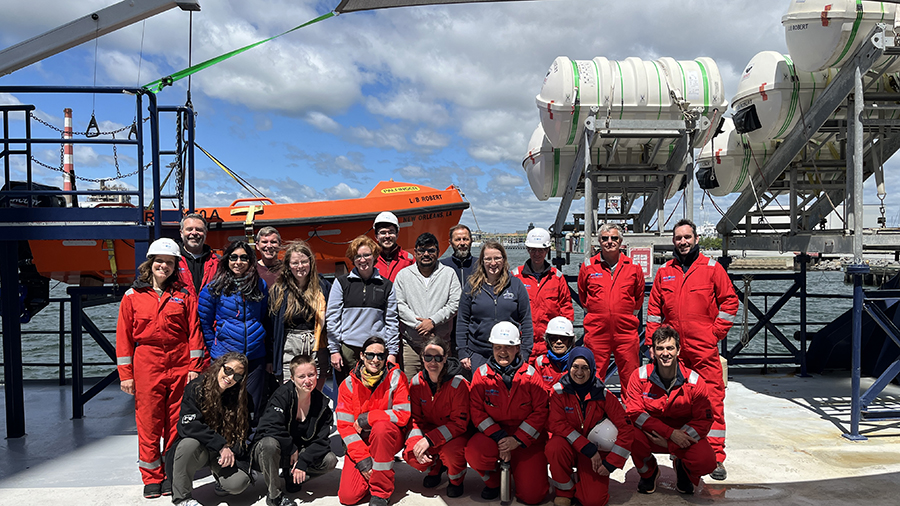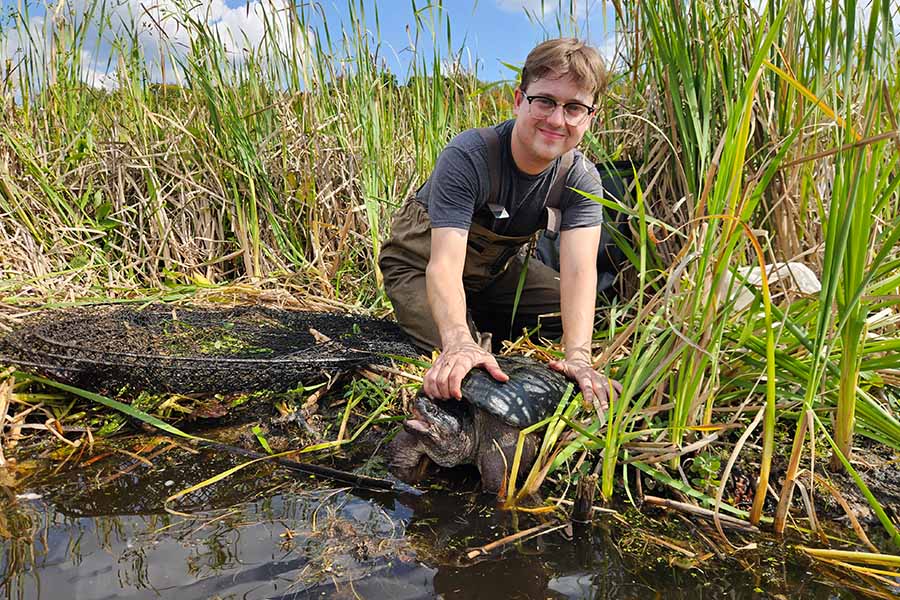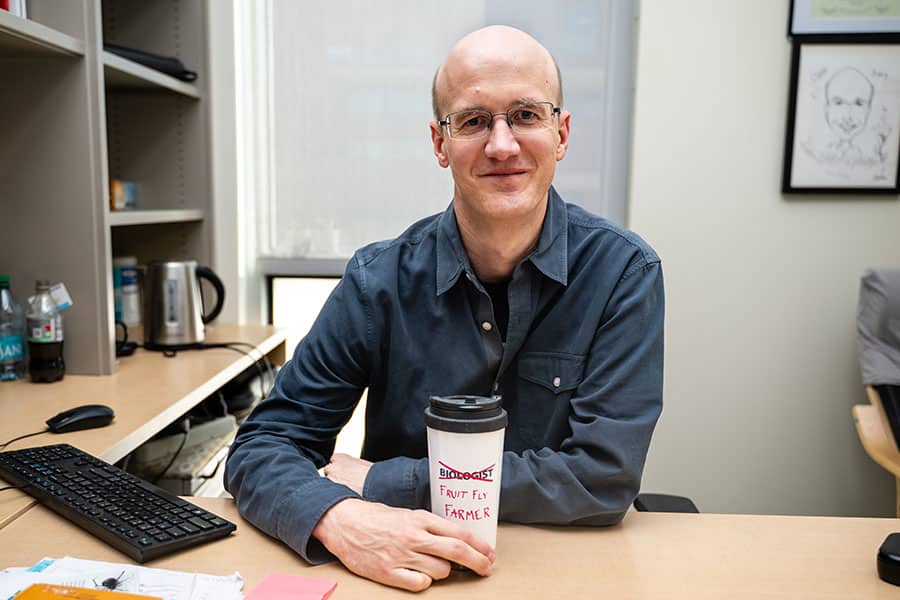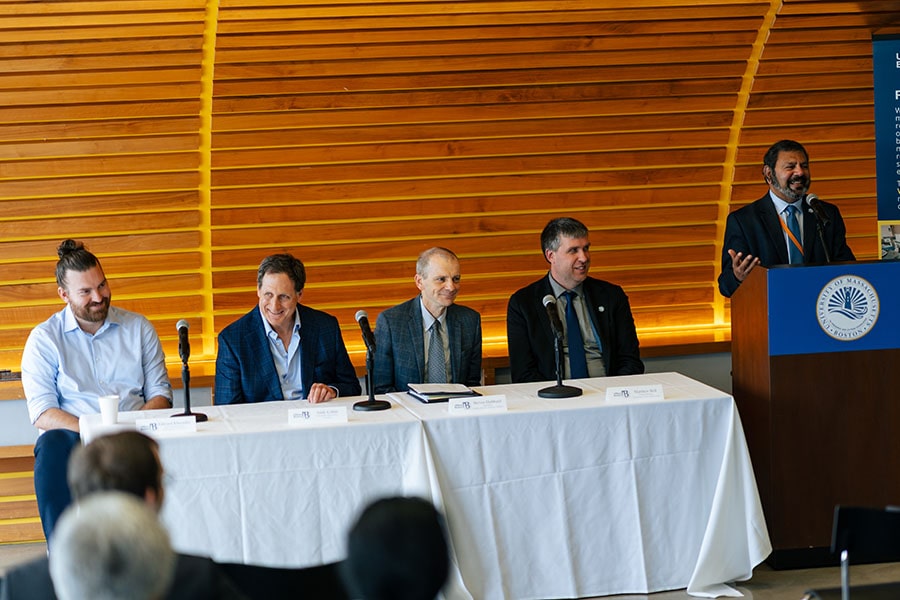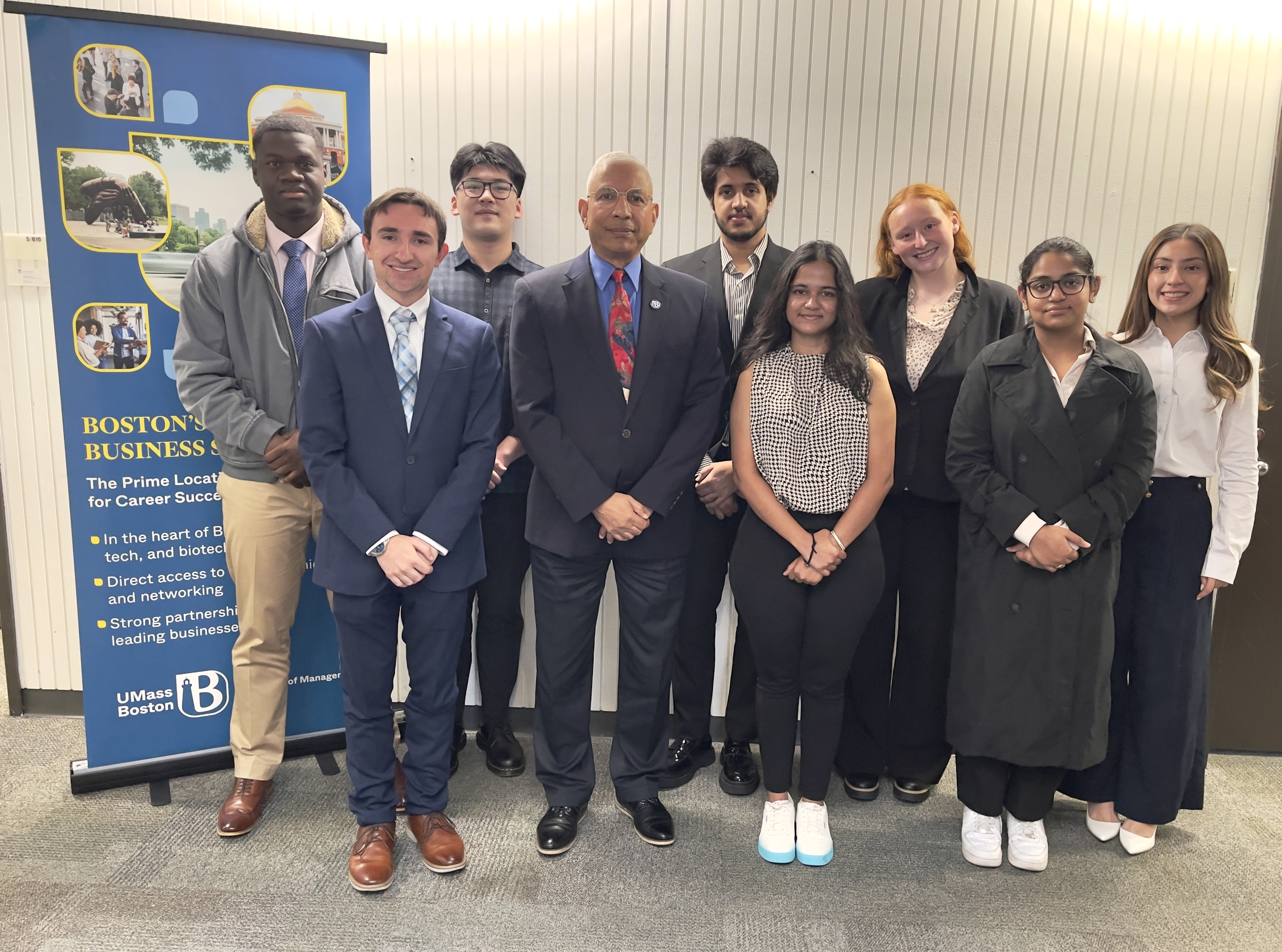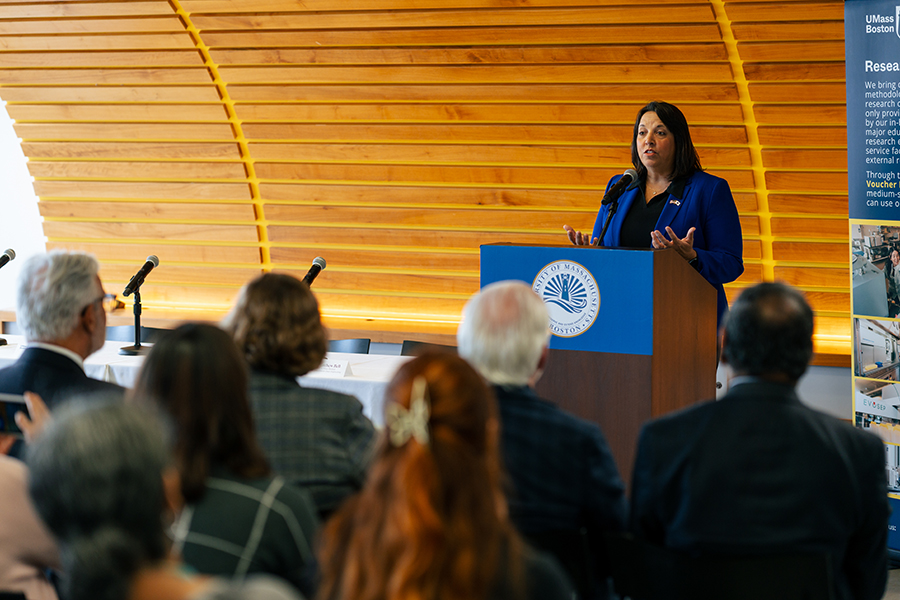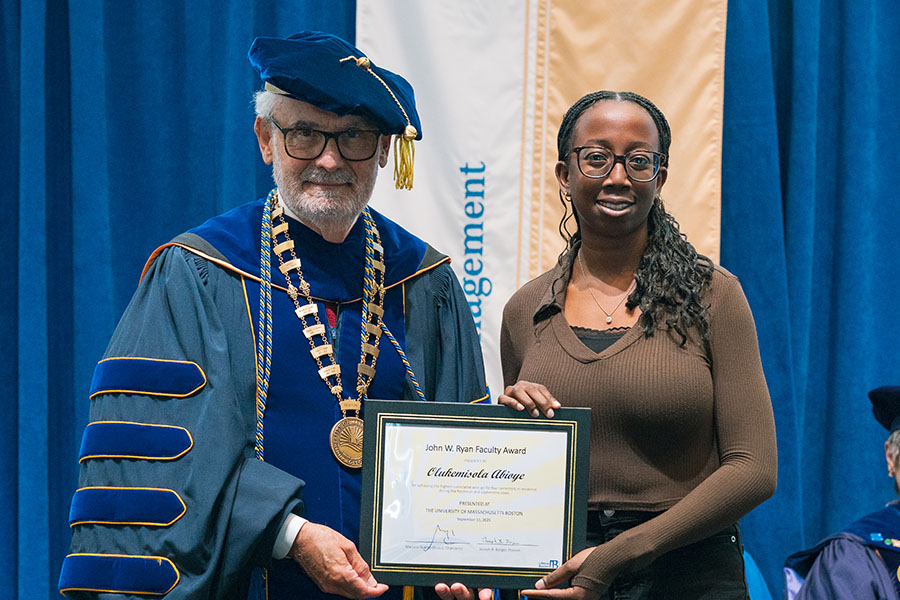UMass Boston Scientist Leads International Expedition to Study Freshwater Under the Ocean Floor
Although scientists first discovered freshened water under the ocean floor in the 1960s, many fundamental questions remain unanswered: Where did the water come from? How long has it been there? And how does it interact with its surrounding marine environment?
An international team of scientists has embarked on an expedition off the coast of New England to investigate one of the ocean's most intriguing mysteries: the presence of fresh or freshened water beneath the seafloor. At the heart of this effort is UMass Boston Professor Karen Johannesson, a renowned environmental geochemist, who is serving as co-chief scientist of the mission alongside Professor Brandon Dugan of the Colorado School of Mines.
The expedition is being conducted by the European Consortium for Ocean Research Drilling (ECORD) as part of the International Ocean Drilling Programme (IODP³), funded by IODP³ and the National Science Foundation (NSF).
The scientists plan to take a closer look at and take samples of this freshened water stored beneath the ocean floor. The expedition, which departed from the port of Bridgeport on May 19, and is using a special platform, the liftboat L/B Robert, equipped with a small drilling rig, to access the sediments below the ocean floor at up to three locations on the New England Shelf offshore from the coast of Massachusetts.
These locations are in relatively shallow water and were identified through numerous preliminary geoscientific investigations. Sediment cores and water samples will be taken down to a maximum depth of 550 meters below the ocean floor and will be examined by researchers from various disciplines drawn from across the international scientific community.
“To date, we know very little about the dynamics of these shoreline-crossing groundwater systems and the age of the water in these systems, and even less about their influence on cycling of nutrients and trace elements and their isotopes,” said Professor Johannesson.
The mission—IODP³-NSF Expedition 501: New England Shelf Hydrogeology—brings together 41 scientists from 13 countries, making it one of the most globally collaborative ocean research efforts of the year. The expedition includes two phases: offshore sampling from May through August 2025, and onshore analysis in January 2026 at the Bremen Core Repository in Germany.
The cores will be archived and made accessible for further scientific research for the scientific community after a one-year moratorium period following an onshore operations phase of the expedition. All expedition data will be open access and resulting outcomes published.
The expedition aims to find answers to the following questions:
- How old is the freshened groundwater, and when was it emplaced?
- How much freshwater is there?
- How does the freshwater interact with seawater?
- What microbial communities are involved?
- What sources of carbon do microbes use?
- What is the general cycling of nutrients and energy in the shelf sediments?
- How might these freshwaters influence nutrient, carbon, and metal concentrations in seawater?
The key priority for researchers is to gain more knowledge about the origin of freshened groundwater in offshore aquifers so that they can confirm or dismiss existing hypotheses. For example, current hypotheses are that the water could have charged the aquifers at a time when sea-level was 100 meters lower than it is today, or perhaps it was generated under an ice sheet or pro-glacial lake during a glacial period such as existed approximately 450,000 and approximately 20,000 years ago.
“We have anecdotal evidence of offshore freshened groundwater from samples and marine geophysical surveys. We have used this evidence to develop hypotheses on timing and mechanism of emplacement,” co-chief scientist and hydrogeologist Brandon Dugan said. “It is exciting to use established scientific ocean drilling approaches with modern data analyses to provide direct tests of our hypotheses. Overall, this work offshore New England will help us better understand offshore freshened groundwater around the world.”
The team believes that the data acquired will help to better understand the processes that lead to the emplacement of freshwater lenses in offshore coastal plain sediments and why this freshened water is present. The findings will be relevant for the hydrogeology of the New England Shelf and for multiple similar settings elsewhere around the world.
The research is essential for a better understanding of the biogeochemical and elemental cycles in the continental shelf environment and will support a focus on the protection and sustainable management of offshore freshwater systems.
Latest University News
- Biology Team to Survey Reptiles and Amphibians in National Parks with $190K NPS Cooperative AgreementProfessors of Biology Rob Stevenson and Doug Woodhams, from the College of Science and Mathematics, have received a two-year award for $190,000 from the Department of the Interior’s National Park Service to develop a comprehensive survey of reptiles and amphibians in participating parks.
- In Fruit Fly Eyes, UMass Boston Researcher Sees Potential Medical DiscoveriesJens Rister, an associate professor in UMass Boston’s biology department, has just been awarded more than $1,700,000 in funding from the National Eye Institute of the NIH to research a protein that guides the development of color vision in fruit flies. By learning more about the underlying mechanisms, Rister hopes to learn about human diseases such as Oculoauricular Syndrome, a genetic condition that affects eyes and ears.
- Quantum Experts Discuss Impact of Investment on Students, Science and BusinessesFollowing the announcement that UMass Boston will be receiving a $3.8M grant to develop and commercialize quantum hardware, expert panelists discussed the positive impact that investment in quantum research can have.
- College of Management Welcomes a Global Cohort of Dean’s Student AmbassadorsThe College of Management at the UMass Boston is proud to announce its newest cohort of Dean’s Student Ambassadors–an extraordinary group of undergraduate leaders who will represent the College throughout the 2025-2026 academic year.
- UMass Boston Secures $3.8M for Collaborative Expanding Quantum Hardware Development, CommercializationMassTech Builds on its Support of UMass Boston, Western New England University-led Initiative
- Olukemisola “Kemi” Abioye has been recognized as the 2025 Ryan Award winner after achieving the highest cumulative GPA over four semestersAfter years of hard work and learning to balance extracurriculars with jobs, internships, and school, Kemi Abioye received the 2025 Ryan Award at UMass Boston.



